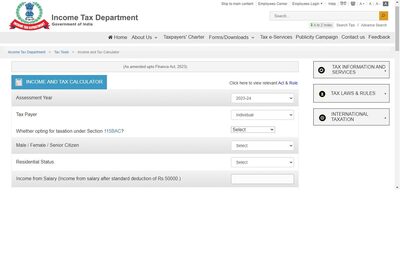
views
Facebook Inc's bungled initial public offering has gone from one of the most highly anticipated stock offerings to a hot legal opportunity for lawyers on both sides of shareholder litigation.
Court battles over the fizzled IPO could run for years, as the social networking company, the banks that took it public and the Nasdaq OMX Group Inc face claims that they short-changed investors.
Besides fighting off claims by Facebook shareholders, the defendants will also need lawyers to respond to inquiries from government investigators looking into how the IPO was handled.
All of this creates a growing legal headache that could pit defendant versus defendant in assigning blame for the IPO fiasco, said Jacob Frenkel, a partner at law firm Shulman Rogers Gandal Pordy & Ecker and a former enforcement lawyer with the US Securities and Exchange Commission.
"I think we should expect a lot of finger pointing," Frenkel said. "That's the exact reason that this is going to be such an opportunity for law firms."
Facebook's IPO raised $16 billion and briefly put a $100 billion stock market value on the company. But the stock has slumped about 16 per cent since the glitch-filled offering on May 18, and the legal problems are mounting.
Plaintiffs have wasted no time in suing.
Class-action firms including Robbins Geller Rudman & Dowd and Hagens Berman have sued on behalf of clients against Facebook, its officers and directors, and underwriters Morgan Stanley, JPMorgan Chase & Co and Goldman Sachs Group Inc in various federal courts.
The suits contend that investors were harmed when analysts who work for Morgan Stanley, the lead underwriter, and the other banks allegedly withheld from all but the most favored clients that they had cut projections on Facebook's financial outlook.
Another Facebook investor sued the Nasdaq in a planned class-action in Manhattan federal court, saying that as prices swung in the first day of trading, investors lost money because they were unable to confirm that their trades were placed.
Market makers Knight Capital Group and Citadel Securities are each claiming losses of $30 million to $35 million tied to the early trading in the IPO and they are looking to Nasdaq to compensate them.
Morgan Stanley said on May 22 that its procedures for the IPO complied with all applicable regulations.
Michael Criden, a lawyer at law firm Criden & Love in Miami, which handles broker misconduct and securities class actions for investors, said he received more than 100 phone calls just on Monday from Facebook investors who wanted to know what their recourse was following the bungled trading.
"That's going to be a legal boon for anyone," Criden said.
Criden and others noted that while the initial fallout will likely generate legal work, it does not necessarily mean there are valid claims or that investors will recover anything. Also, large Facebook investors are likely waiting to see how the stock performs over a longer term before considering legal action.
As the stock rises, potential damages recovery through litigation declines, said Scott Berman, a partner at Friedman Kaplan Seiler & Adelman, who represents defrauded hedge funds and other institutions.
But if a jury were to accept the shareholders claims, damages potentially could be huge. Michael Swick of Kahn Swick & Foti, a firm that brings securities class actions, said that potential damages could amount to several dollars per share of Facebook. Given the offering of more than 400 million shares, that could top $1 billion, he estimated.
Big legal bills
The legal bills will likely be costly for the defense, regardless of how the cases are resolved.
Individual executives at a company facing a possible government investigation would likely retain their own lawyers, while the company would have one coordinating law firm, plus additional firms in key jurisdictions, legal experts say.
For defense lawyers, "nothing is better than a wealthy client with gobs of money to spend on lawyers," said John Coffey, a former plaintiffs and defense lawyer who is now a managing director with BlackRobe Capital Partners, a firm that advises investors in legal claims.
Facebook has used an array of lawyers for past legal work. It hired Silicon Valley law firm Fenwick & West for transactional work related to the IPO. The Cooley law firm handles the bulk of Facebook's intellectual property matters.
William McLucas, a partner at law firm WilmerHale in Washington and a former SEC enforcement director, helped Facebook handle an SEC inquiry that became public in 2010 about shares of Silicon Valley companies traded on secondary, private exchanges, according to sources familiar with the inquiry.
Another WilmerHale partner, William Lee, was hired by Facebook to defend against a patent lawsuit filed by Yahoo Inc in San Francisco federal court in March involving online advertising.
Other firms that have done work for Facebook include Orrick Herrington & Sutcliffe, in its dispute with brothers Cameron and Tyler Winklevoss who claimed that the idea for Facebook had been stolen from them. Other firms that have worked for Facebook include Gibson Dunn & Crutcher and Kirkland & Ellis.
The underwriters were advised by Simpson Thacher & Bartlett in the IPO, according to the offering document.
As the questions over the IPO continue to swirl, legal experts said that lawyers for Facebook and the other defendants may advise them to be as proactive as possible.
Ross Garber, a white-collar lawyer for law firm Shipman & Goodman in Washington, said it would not be surprising if Facebook attorneys reached out to regulators such as the New York Attorney General's office, which often takes the lead among state attorneys general for Wall Street issues.
A spokesman for New York Attorney General Eric Schneiderman declined comment on any involvement in the Facebook IPO investigations.
"If you're Facebook, you're making a list of all the regulators you have to deal with, and identifying some you want to deal with more quickly than others," Garber said.
Facebook, Morgan Stanley and Kirkland & Ellis declined to comment. WilmerHale, Nasdaq, Goldman Sachs, JPMorgan, Fenwick, Cooley, Orrick, Gibson Dunn and Simpson & Thacher did not respond to requests for comment.




















Comments
0 comment